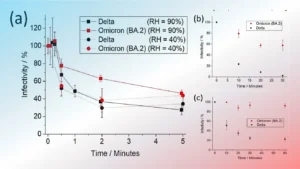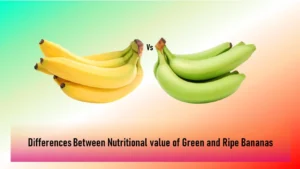Definition of Quantum Computing:
Quantum computing is a type of computation that takes advantage of the quantum mechanical properties of particles to perform operations on data at a scale that is not feasible with traditional computers.
Historical Background:
The concept of quantum computing originated in the early 1980s with Richard Feynman and Yuri Manin proposing the idea of a machine that operates on quantum mechanical principles.
Significance:
Quantum computers promise to solve complex problems significantly faster than classical computers, especially in fields such as cryptography, material science, and complex system simulation.
Principles of Quantum Computing
Superposition
Concept: Superposition refers to the quantum phenomenon where particles exist in multiple states at once, enabling a quantum computer to perform many calculations simultaneously.
Applications: This principle finds significant application in parallel computing and cryptography.
Quantum Bits (Qubits)
Definition: Unlike classical bits that can be either 0 or 1, a quantum bit (qubit) can exist in a state corresponding to both 0 and 1 simultaneously, due to the principle of superposition.
Manipulation: Utilizing the principle of superposition, a quantum bit (qubit) can simultaneously exist in states of 1 and 0, allowing it to perform multiple calculations at once. This phenomenon, described as cooperation between parallel universes, exponentially increases computational power with the addition of each qubit, revolutionizing computational capabilities.
Entanglement
- Concept: Quantum entanglement is a physical phenomenon where the state of one particle instantly influences the state of another, no matter the distance separating them.
- Applications: Entanglement is exploited in quantum computing for complex operations and algorithms, such as quantum teleportation and quantum key distribution.
Quantum Computing Algorithms
Shor’s Algorithm
- Purpose: Developed by Peter Shor in 1994, this algorithm can factor large numbers exponentially faster than the best-known algorithms running on a classical computer.
- Significance: This algorithm threatens current cryptographic techniques, as it can potentially crack encryption codes much quicker.
Grover’s Algorithm
- Purpose: Devised by Lov Grover in 1996, it’s designed for searching an unsorted database.
- Efficiency: It can perform these tasks considerably faster than any classical algorithm.
Current Developments and Future Prospects
Research and Development:
Many nations and corporations are investing heavily in research and development to build scalable and reliable quantum computers (e.g. Google, IBM, Alibaba, Amazon etc.). As of now, IBM has the leadership in this space.
In November 2022, IBM unveiled its new 433-qubit Osprey chip, which is currently the world’s most powerful quantum processor.
IBM has more than 20 quantum computers available on its open-source quantum toolkit Qiskit. It offers free access to some quantum machines, while paying clients like startups and scholars can lease more powerful ones remotely.
IBM has a roadmap to launch a 1,121-qubit processor in the year 2023. By 2025, IBM plans to surpass 4,000 qubits by creating modular quantum circuits that connect multiple processor chips in the same computer.
Potential Applications:
Quantum computing has potential applications in numerous fields including medicine for drug discovery, finance for portfolio optimization, and logistics for route optimization etc.
India’s Initiative: In India, significant strides are being made in the field, with the government launching the Quantum Computing Applications Lab in collaboration with AWS, aiming to boost quantum computing research and development in the country.
Application areas
Quantum computing stands as a rapidly progressing field with the potential to influence various domains significantly. Here are the key areas where quantum computing is anticipated to make a substantial impact:
1. Artificial Intelligence
Quantum computing can potentially foster advancements in deep learning, enhancing the understanding of quantum mechanics. Simultaneously, matured quantum computers may excel in data pattern recognition, surpassing traditional computers.
2. Energy Storage
The field may contribute to the creation of batteries with enhanced efficiency and longevity.
3. Agricultural Advancements
Quantum computers might play a role in formulating cleaner fertilization methods.
4. Cybersecurity
The application of quantum computing is foreseen to reinforce cybersecurity protocols.
5. Pharmaceutical Innovations
The advent of quantum computing can be a catalyst in the revolution of drug development, allowing the simulation of molecular-level quantum mechanics.
6. Materials Science
Quantum computers have the potential to aid in the discovery of novel electronic materials.
7. Financial Analysis
Quantum computing is poised to refine financial modeling, facilitating more accurate predictions.
8. Renewable Energy
The technology might enhance methods for solar energy capture.
9. Urban Planning
Quantum computers could streamline traffic flow management, reducing congestion and fostering more efficient transportation systems.
10. Meteorology and Environmental Science
Quantum computing can enhance weather forecast accuracy and be a vital tool in climate change studies.
Concerns
1. Security Risks: The significant computing power of quantum computers poses a threat to existing cryptographic systems, potentially rendering them obsolete. This could compromise the security of sensitive information, including communications, financial transactions, and military defenses.
2. Race for Technological Dominance: The development of quantum computing has become a race between nations, particularly China and the United States, as they strive to gain a competitive edge in this disruptive technology.
3. Impact on Industries: Quantum computing has the potential to disrupt various industries, affecting traditional computing, cryptography, logistics, finance, and more.
4. Ethical Considerations: Quantum computing raises ethical questions related to privacy, data security, and the potential for misuse. Safeguarding personal and sensitive information becomes even more critical as the computing power of quantum computers advances.
5. Economic Disparities: The development and deployment of quantum computing technologies may lead to economic disparities between countries and industries. Access to quantum computing resources and expertise may become a determining factor in economic competitiveness.
Need for New Regulations
The rapid advancement of quantum computing necessitates the development of new regulations and policies to address potential risks and ensure responsible use. Establishing guidelines for data protection, encryption standards, and international cooperation becomes crucial.
Skill Gap and Talent Acquisition
Quantum computing requires specialized knowledge and skills. The demand for experts in quantum physics, computer science, and related fields is likely to increase. Bridging the skill gap and attracting top talent will be essential for the successful development and adoption of quantum computing.
Also Read:
What is Intellectual Property Rights and types of IPR?
Internet of Things (IoT) Device, Working and Benefits











